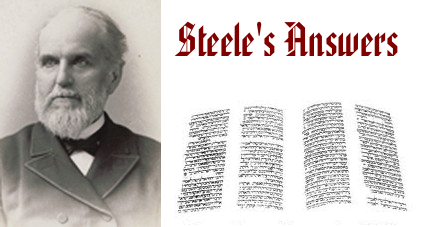ANSWER: It is a pleasant play upon three Greek words, airei, cleanse, cathairoi, clean. Bishop Westcott, an eminent Greek scholar, says: "The spiritual work representing this "cleansing" was potentially completed for the apostles, the representatives of his church. It remained to be realized by them (compare Col. 8:8, 5). They were clean "because of the word." The word, the whole revelation to which Christ had given expression, was the spring and source, and not only the instrument, of their purity (it is "because" of (Revised Version), and not "through", John 6:57). He then cites John 8:81, 82, Eph. 5:26, James 1:18. In John 17:17 Christ thus prays, "Sanctify them in thy truth," a needless prayer, if they were already wholly sanctified. Let me illustrate this "cleansing potentially completed.," but as yet not "realized." A father presents to his son Webster's Unabridged Dictionary, saying, "Now, my son, you are made complete in the English language." The son says, "By diligence I hope to realize your design."
— Steele's Answers pp. 200, 201.

.png)